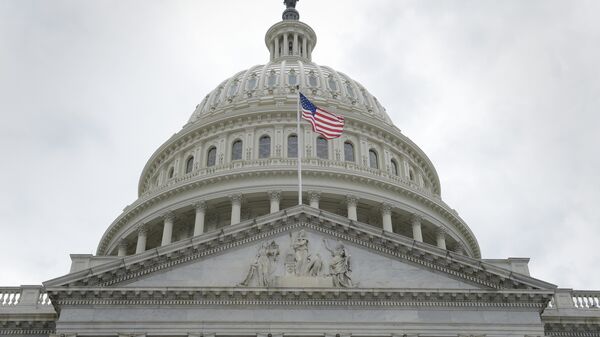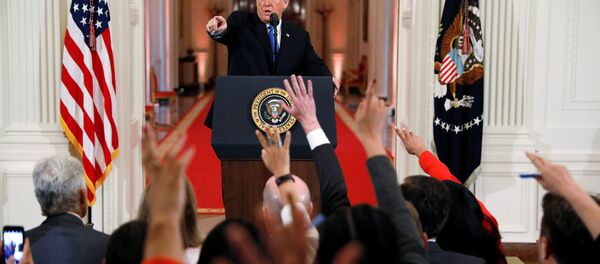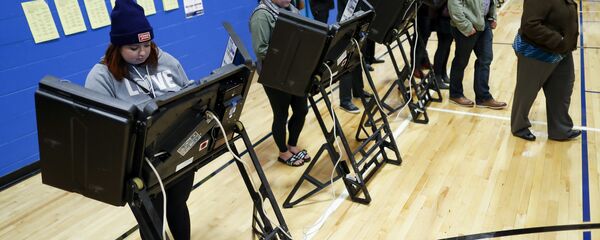Sputnik spoke to Inderjeet Parmar, Professor of International Politics at City, University of London for more insight on the issue.
Sputnik: Will this change of direction affect the relationship between Europe and the US?
Inderjeet Parmar: This is a victory for Trump in the main, and his attacks on NATO and the EU, and his threats on terrorists will continue. What would change is that the House of Representatives now, with the Democrats in charge, will be able to exert a lot more pressure in pro-NATO, pro-EU direction, and also kind of hold the Trump administration into account in regard to its tariff plans.
The key power over foreign policy really does reside with the President and to a large extent in the Senate. So, for example, any cabinet appointment and so on are going to be in the Senate – that should be totally fine.
Sputnik: How do European leaders see the Democrats regaining control of the House?
Inderjeet Parmar: Their approach before was just ‘wait Trump out’, and I think what they were looking to in the midterm elections was whether or not there could be any kind of challenge to Trump, a very significant one, that that he was to lose both the Senate and the House of Representatives, and really had to find whether Trumpism is here to stay.
I think that the midterms have delivered no decisive answer. The Senate has increased its majority – that suggests that where he campaigned most, in rural white areas, in States which he needed to defend, he did pretty well. He basically gave up the suburbs, because he could see that the House was going to head in that direction.
Sputnik: What do countries like France and Germany think about the change of the US political landscape?
Inderjeet Parmar: ‘We still have to work with the United States, we still have to work with the Trump administration, but we got a little bit of hope that the Democrats will be able to exert pressure on Trump, sort of clip his wings a little bit by questioning, investigating, rather than when the Republicans were in charge, they would basically rubber-stamp what Trump was doing.
Now it seems to be that the Democrats will be able to maybe moderate some of his positions; but, on the other hand, the Democrats will probably strengthen certain areas, or push him further in certain areas – for example, on being more hostile to Putin and to Russia. But they may oppose his decisions to withdraw from the Intermediate Nuclear Forces Treaty of 1988, and rather than abandoning it altogether, maybe they could push him to reform it in some way.
And then there are another number of world questions they might be interested in, like Saudi Arabia, the war in Yemen, arms sales from the United States, possibly the Korean front as well.
Views and opinions expressed in this article are those of Inderjeet Parmar and do not necessarily reflect those of Sputnik.



